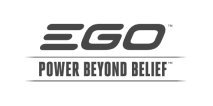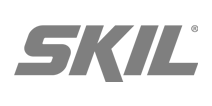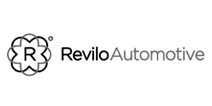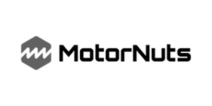
Tracking the right KPIs for your PPC strategy
We’re assuming you’re OK with the abbreviations – KPI (key performance indicator) and PPC (pay-per-click). Good.
So, you want to know which metrics are most important to determine how your Paid Search adverts are performing? Well, there’s no short checklist but there are certain tactics that can be applied to make the most of your investment.
Defining your PPC goals
As with SEO, avoid vanity metrics – don’t place undue importance on large numbers if they’re not contributing to your ultimate goal(s). Get your goals defined as explicitly as possible, so all stakeholders are clear.
Another benefit will be that you won’t get bogged down in data – as the sheer amount available can seem overwhelming. But by knowing where to focus, you’ll ensure both your time and money are spent in the most effective way.
Which KPIs to track depends on your businesses objectives, and how an individual campaign or tactic will play its part. So, beware of any article that claims a definitive list of ‘12 vital PPC KPIs you should be tracking’!
Your own list is something you’ll be able to establish and follow, with the support of your PPC consultant.
Creating your list: examples of PPC KPIs
Some of the more commonly used KPIs by PPC managers include:
- Google Quality Score (Google’s calculation of your ad’s quality and relevance – this metric ensures you’re paying the lowest possible rate for your clicks. If you get this right, you can be in the top position and pay less than position two!)
- Average click-through rate (CTR – the number of times an ad was clicked vs number of times seen during a stated period)
- Number of impressions (number of times your ad was seen)
- Impression share (percentage of times your ad was seen compared to the available impressions)
- Average cost per click (CPC)
- Conversion rate
- Cost-per-conversion
Return on ad spend (ROAS)
One of the most important KPIs that should underpin all these and more is return on ad spend (ROAS).
Because if your PPC advertising efforts are having little effect generating revenue, then your whole strategy may need attention.
ROAS is simpler to calculate for some sectors than others – like an e-commerce store, where sales from ad clicks are easily tracked.
But it’s still fundamentally as simple as: revenue generated by ads, divided by money spent on ads.
ROAS = revenue generated by ads ÷ money spent on ads
Establishing an acceptable ROAS for your own PPC campaigns depends on your defined budget, usual profit margins and much more.
A lower ratio may be more acceptable if your campaign is more brand awareness focused than high-volume FMCG, for example.
Goal completions
Even if your business isn’t a purchase focused online shop, there are other goal completions that can be defined.
Working with your PPC agency, you can set up measurable actions to be tracked as goals for users to complete, such as:
- Form submission
- Add to cart
- Downloads
- Play media
- Free trial
- Newsletter signup
These need to be clearly defined from the start of your PPC campaign – and SMART (you know that acronym, we won’t labour it).
Then you’ll be able to track the metrics that matter to your business and – just as crucial – continue to improve in the right areas.
Ready to kickstart your KPI game?
Speak to someone who can help ensure your campaigns are aligned with your aims, then the right KPIs will become clear.
In PPC advertising, the poorer your planning, the poorer your results (and all the metric measuring in the world will only confirm this).
Get in touch today. If you know someone who might get value from this content, please share!
Photo by William Warby on Unsplash
-
 30.06.2021|Learn how to bid on PPC advert keywords and create ads that convert - and stop wasted ad spend by using best practice or, better still, getting support.
30.06.2021|Learn how to bid on PPC advert keywords and create ads that convert - and stop wasted ad spend by using best practice or, better still, getting support. -
 01.07.2021|Door4 is 21 this year. Our Founder and Director Leon Calverley explains how people have been at the heart of the digital marketing agency’s success.
01.07.2021|Door4 is 21 this year. Our Founder and Director Leon Calverley explains how people have been at the heart of the digital marketing agency’s success. -
 26.08.2020|Lockdown caused advertisers to withdraw from digital marketing. What opportunities opened up for smaller brands who already had skin in the game?
26.08.2020|Lockdown caused advertisers to withdraw from digital marketing. What opportunities opened up for smaller brands who already had skin in the game?
Scrapbook
We have a lot to talk about.Door4 opinions and insight - exploring performance marketing, communications and optimisation.













